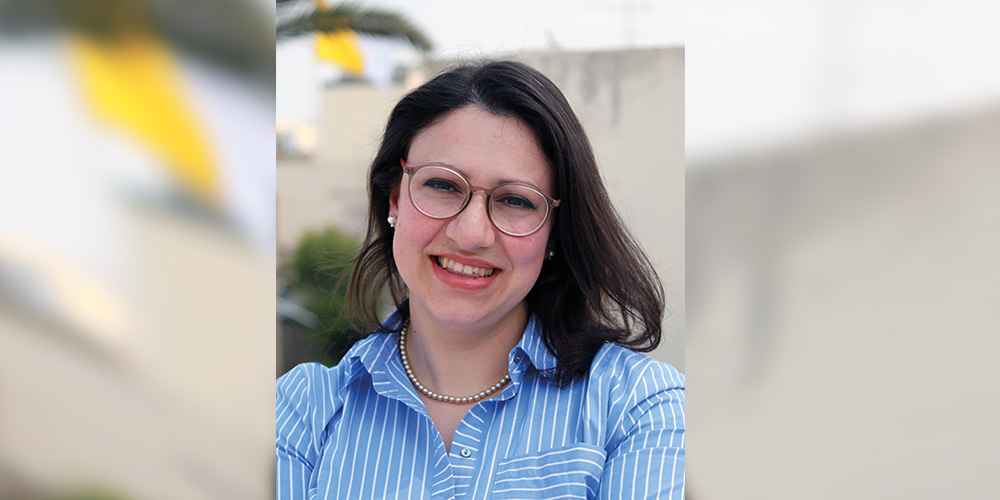Information alone rarely changes behaviour. Fossil fuel cars are no exception. Dr Thérèse Bajada (Institute for Climate Change and Sustainable Development, University of Malta) searches for an optimal mix of facts and emotions to engage people on their mobility choices.
Have you ever tried to use the bus but did not find the information you needed and then simply gave up? Being informed is an important component of decision-making. Information is ‘the communication of instructive knowledge’, according to the Oxford Dictionary. Those instructions bridge the gap between awareness and action. When instructive knowledge feeds into consciousness of the available modes of transport and their related impacts, it can contribute towards sustainable mobility. But is information enough to change our behaviour?
Information needs to be used responsibly. Change in behaviour comes by engaging the right emotions in specific groups of people. There is a fine balance between providing the correct information and engaging the right emotions. For instance, if online applications such as the Carbon Footprint for Google Maps merely display information about emissions depending on the mode of transport used, that information might not be enough for people to use cleaner transportation. People can understand a given value of CO2 emissions differently. In this case it is essential to engage the emotions, because a small value can seem negligible while still being highly polluting.

Individuals have the power to decide whether to use sustainable transport. Thinking globally and acting locally is easy when it becomes a habit. Whenever I (Dr Thérèse Bajada, University of Malta [UM]) go to Valletta, I use the bus, and if I need to go to Sliema from Valletta I use the ferry service. It is an enjoyable ride; the service is reliable, and I use multiple modes of transport that substitute the car. I can use the Tallinja card to pay for the different services. Yet this choice is not straightforward for everyone. Sustainable mobility needs to be available and convenient. Equally important is that people need to know how and when to use the service.
While working on my PhD (‘The Impact of Bus Reform on Behaviour and Policy: The Case of Malta’), I found that bus service users criticised the lack of information. Bus passengers seek availability, reliability, and an accommodating service. Information on these three factors helps users reach destinations and enhances accessibility. Since the reform of 2011 the service has improved, with information on bus stops, the journey planner, and Tallinja application all encouraging more trust. And yet, survey after survey shows that despite bus usage picking up, there is still no modal shift from car to bus.
Change in behaviour comes by engaging the right emotions in specific groups of people.
The lack of change inspired me to explore the importance of information in decision-making. So, together with a group of M.Sc. students from the Institute for Sustainable Energy, who read for my study unit Transport Management, we conducted a qualitative study on the value of information. The students performed 50 semi-structured interviews between October and December 2018. Interviewees took part in a scenario where they had to make a decision about their daily commute. They had to choose between active travel (that is walking and cycling), bus use, and car use. For the car option, the information included the equivalent CO2 emissions. After stating their preferred mode of transport, the participants were told the number of trees required to absorb those emissions and provide oxygen. I wanted to gauge the interviewees’ emotional reactions to this information.
From the range of interview responses, I distinguished three types of emotions. The first type didn’t care about environmental impacts, specifically stating: ‘Why would I care?’. The second type felt bad about the situation, but said that they cannot do anything, ‘I feel bad about it but in Malta there is no real other option [apart from cars], the buses are completely unreliable.’ They provided other reasons like not reaching the destination on time. These participants stated that the information provided helped them be more careful and conscientious about the transport they would use. The third type were shocked that their individual deeds were having a bad environmental impact and wanted the situation addressed: ‘There has to be awareness in order to reduce such emissions.’
Bus passengers seek availability, reliability, and an accommodating service.
Like the work of my colleagues Carlo Cañas (THINK issue No. 31) and Suzanne Maas (THINK issue No. 30), my study suggests that everyone has to do their part. On the one hand, information can help people make decisions that improve their health, the environment, society, and their finances – decisions that are geared towards sustainability. On the other hand, policy makers, transport regulators, and operators need to provide people with the right alternatives. For example, if there are incentives to use the bus, ensure that the bus service is reliable, and if there are incentives to use bicycles, provide safe cycle routes. Such approaches could encourage the shift the Maltese Islands need.
I now want to build a conceptual model. Models are used to simplify reality to better understand how the complexities of real-life work. For this purpose, I am collaborating with Prof. Jon Shaw (School of Geography, Earth and Environmental Sciences, University of Plymouth). Our model focuses on human behaviour in environmental preservation. It is a combination of the Value Belief Norm Theory of Environmentalism and the Environmental Citizenship Model. The first one is about deriving environment-friendly behaviour from values, beliefs, and personal norms. The second one consists of four stages, where the relevant stage for my research is the ownership level: factoring in emotions that influence an individual’s sense of obligation towards the environment. By applying this model, we can understand the value of information through environmental beliefs and the influence information has on behaviour.
I look forward to applying the model using statistics. This way we will gauge the role of information under different mobility-related scenarios. Yet as we gather responses, we must remember what the qualitative study shows. Showing information that pushes people out of their comfort zone is not enough to cause change. Strong emotions will not translate into action without the right incentives — drivers may regret the damage that they cause to the environment, and still start their car the next morning. Research can help find the right balance between an information overload and barely sufficient information.





Comments are closed for this article!